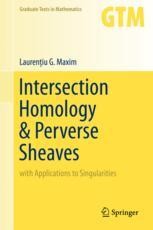Questions on the future of lower bounds
Thoughts 2021-03-07
Will any of the yellow books be useful?

Book 576 (not pictured) was saved just in time from the paper mill. It was rumored that Lemma 76.7.(ii) could have applications to lower bounds. Upon closer inspection, that lemma has a one-line proof by linearity of expectation if you change the constant 17 to 19. This change does not affect the big-Oh.
Will the study of randomness lead to the answer to any of the questions that are open since before randomness became popular? I think it’s a coin-toss.
Will there be any substance to the belief that algebraic lower bounds must be proved first?
Will the people who were mocked for working on DLOGTIME uniformity, top fan-in k circuits, or ZFC independence have the last laugh?
Will someone switch the circuit breaker and lit up CRYPT, DERAND, and PCPOT, or will they remain unplugged amusement parks where you sit in the roller coaster, buckle up, and pretend?
Will diagonalization be forgotten, or will it continue to frustrate combinatorialists with lower bounds they can’t match for functions they don’t care about?
Will decisive progress be made tonight, or will it take centuries?
Only Ketan Mulmuley knows for sure.